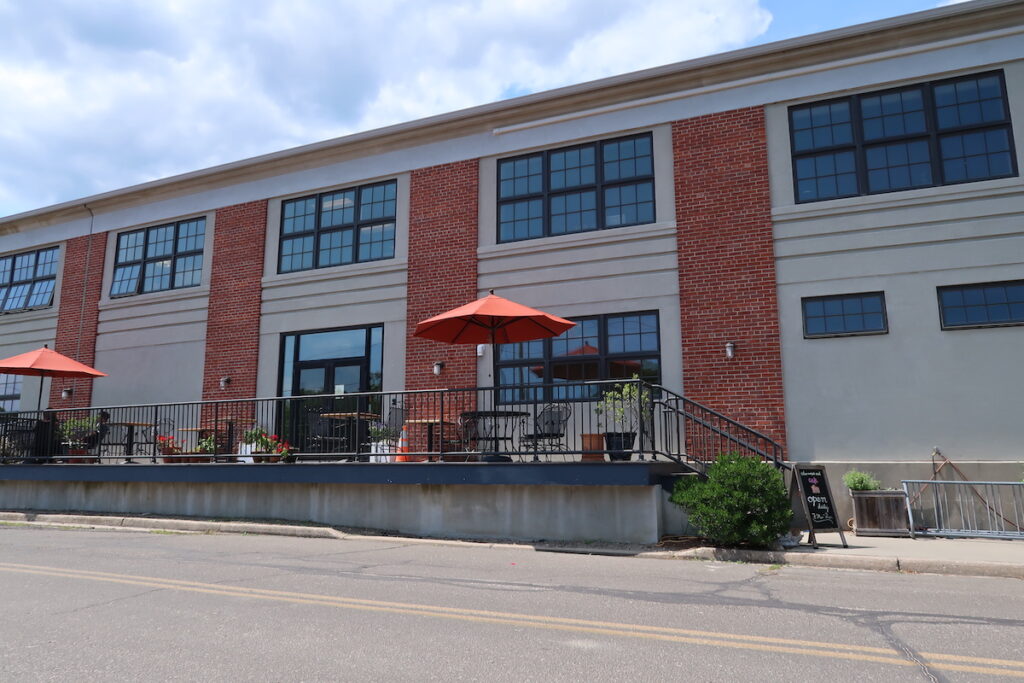Pollution project gets funding

RANDEE DADDONA PHOTO
Porous material and a vegetative barrier will replace this boat ramp on Spring Pond in East Marion as part of a runoff mitigation project funded by the Peconic Estuary Program and Group for the East End.
With help from environmental advocacy organization Group for the East End, the Gardiners Bay Estates Homeowners Association in East Marion has been awarded a $10,000 grant funded through the Peconic Estuary Program (PEP) to restore Spring Pond, a shallow body of brackish water that had an inlet open to Orient Harbor in the 1920s. It’s been a haven for neighborhood boaters ever since but was deemed too polluted for shellfishing by the New York State Department of Environmental Conservation in 2008.
“There used to be blowfish here, all sorts of fish,” said Douglas Fisher, a full-time East Marion resident for two years who has been summering in the area since 1958. “There is none of that anymore. It’s all gone.”
Another PEP grant administered through the group went to the Oysterponds school to fund a garden that will attract songbirds.
Mr. Fisher was one of several neighbors from the 100-member homeowners association who gathered Friday afternoon at the home of Dan Mooney, who has an expansive porch that overlooks the pond and Orient Harbor. They met to talk about the environmental improvements that will be needed at the pond.
The biggest problem, said Mr. Fisher, is polluted runoff. One source is an out-of-date boat ramp, located at the bottom of a sloping road on the northeast side of the muddy pond.
“It’s remarkable how much water comes down here in a storm. After they paved the roads years ago, the runoff problem took on a life of its own.” Mr. Fisher said.
Jennifer Hartnagel, environmental advocate at Group for the East End, said that replacing the ramp’s paved surface with pervious material, and adding a swale vegetated with native plants, would slow down and filter the runoff. Also, three road drains that direct runoff into the pond will be removed, and a series of dry wells will replace them to catch water before it reaches the pond.
Ms. Hartnagel added that without the association’s group effort to research the runoff problem and propose solutions, the grant would not have been possible.
“They really have to be commended for their work as a community,” Ms. Hartnagel she said.








